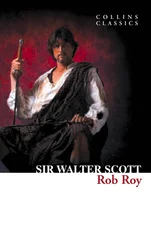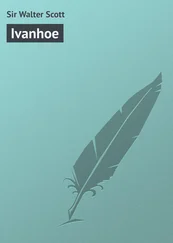Sir Scott - Ivanhoe
Здесь есть возможность читать онлайн «Sir Scott - Ivanhoe» — ознакомительный отрывок электронной книги совершенно бесплатно, а после прочтения отрывка купить полную версию. В некоторых случаях можно слушать аудио, скачать через торрент в формате fb2 и присутствует краткое содержание. Жанр: Старинная литература, на английском языке. Описание произведения, (предисловие) а так же отзывы посетителей доступны на портале библиотеки ЛибКат.
- Название:Ivanhoe
- Автор:
- Жанр:
- Год:неизвестен
- ISBN:нет данных
- Рейтинг книги:5 / 5. Голосов: 1
-
Избранное:Добавить в избранное
- Отзывы:
-
Ваша оценка:
- 100
- 1
- 2
- 3
- 4
- 5
Ivanhoe: краткое содержание, описание и аннотация
Предлагаем к чтению аннотацию, описание, краткое содержание или предисловие (зависит от того, что написал сам автор книги «Ivanhoe»). Если вы не нашли необходимую информацию о книге — напишите в комментариях, мы постараемся отыскать её.
Ivanhoe — читать онлайн ознакомительный отрывок
Ниже представлен текст книги, разбитый по страницам. Система сохранения места последней прочитанной страницы, позволяет с удобством читать онлайн бесплатно книгу «Ivanhoe», без необходимости каждый раз заново искать на чём Вы остановились. Поставьте закладку, и сможете в любой момент перейти на страницу, на которой закончили чтение.
Интервал:
Закладка:
As the cavalcade left the court of the monastery, an incident happened somewhat alarming to the Saxons, who, of all people of Europe, were most addicted to a superstitious observance of omens, and to whose opinions can be traced most of these notions upon such subjects still to be found among our popular antiquities. For the Normans being a mixed race, and better informed according to the information of the times, had lost most of the superstitious prejudices which their ancestors had brought from Scandinavia, and piqued themselves upon thinking freely on such topics.
In the present instance, the apprehension of impending evil was inspired by no less respectable a prophet than a large lean black dog, which, sitting upright, howled most piteously as the foremost riders left the gate, and presently afterwards, barking wildly, and jumping to and fro, seemed bent upon attaching itself to the party.
“I like not that music, father Cedric,” said Athelstane; for by this title of respect he was accustomed to address him.
“Nor I either, uncle,” said Wamba; “I greatly fear we shall have to pay the piper.”
“In my mind,” said Athelstane, upon whose memory the Abbot’s good ale—for Burton was already famous for that genial liquor—had made a favourable impression—“in my mind we had better turn back and abide with the Abbot until the afternoon. It is unlucky to travel where your path is crossed by a monk, a hare, or a howling dog, until you have eaten your next meal.”
“Away!” said Cedric, impatiently; “the day is already too short for our journey. For the dog, I know it to be the cur of the runaway slave Gurth, a useless fugitive like its master.”
So saying, and rising at the same time in his stirrups, impatient at the interruption of his journey, he launched his javelin at poor Fangs; for Fangs it was, who having traced his master thus far upon his stolen expedition, had here lost him, and was now, in his uncouth way, rejoicing at his reappearance. The javelin inflicted a wound upon the animal’s shoulder, and narrowly missed pinning him to the earth; and Fangs fled howling from the presence of the enraged thane. Gurth’s heart swelled within him; for he felt this meditated slaughter of his faithful adherent in a degree much deeper than the harsh treatment he had himself received. Having in vain attempted to raise his hand to his eyes, he said to Wamba, who, seeing his master’s ill-humour, had prudently retreated to the rear, “I pray thee, do me the kindness to wipe my eyes with the skirt of thy mantle; the dust offends me, and these binds will not let me help myself one way or another.”
Wamba did him the service he required, and they rode side by side for some time, during which Gurth maintained a moody silence. At length he could repress his feelings no longer.
“Friend Wamba,” said he, “of all those who are fools enough to serve Cedric, thou alone hast dexterity enough to make thy folly acceptable to him. Go to him, therefore, and tell him that neither for love nor fear will Gurth serve him longer. He may strike the head from me, he may scourge me, he may load me with irons, but henceforth he shall never compel me either to love or to obey him. Go to him, then, and tell him that Gurth the son of Beowulph renounces his service.”
“Assuredly,” said Wamba, “fool as I am, I shall not do your fool’s errand. Cedric hath another javelin stuck into his girdle, and thou knowest he does not always miss his mark.”
“I care not,” replied Gurth, “how soon he makes a mark of me. Yesterday he left Wilfred, my young master, in his blood. Today he has striven to kill before my face the only other living creature that ever showed me kindness. By St. Edmund, St. Dunstan, St. Withold, St. Edward the Confessor, and every other Saxon saint in the calendar (for Cedric never swore by any that was not of Saxon lineage, and all his household had the same limited devotion), I will never forgive him!”
“To my thinking now,” said the Jester, who was frequently wont to act as peacemaker in the family, “our master did not propose to hurt Fangs, but only to affright him. For, if you observed, he rose in his stirrups, as thereby meaning to overcast the mark; and so he would have done, but Fangs happening to bound up at the very moment, received a scratch, which I will be bound to heal with a penny’s breadth of tar.”
“If I thought so,” said Gurth—“if I could but think so; but no, I saw the javelin was well aimed; I heard it whizz through the air with all the wrathful malevolence of him who cast it, and it quivered after it had pitched in the ground, as if with regret for having missed its mark. By the hog dear to St. Anthony, I renounce him!”
And the indignant swineherd resumed his sullen silence, which no efforts of the Jester could again induce him to break.
Meanwhile Cedric and Athelstane, the leaders of the troop, conversed together on the state of the land, on the dissensions of the royal family, on the feuds and quarrels among the Norman nobles, and on the chance which there was that the oppressed Saxons might be able to free themselves from the yoke of the Normans, or at least to elevate themselves into national consequence and independence, during the civil convulsions which were likely to ensue. On this subject Cedric was all animation. The restoration of the independence of his race was the idol of his heart, to which he had willingly sacrificed domestic happiness and the interests of his own son. But, in order to achieve this great revolution in favour of the native English, it was necessary that they should be united among themselves, and act under an acknowledged head. The necessity of choosing their chief from the Saxon blood-royal was not only evident in itself, but had been made a solemn condition by those whom Cedric had entrusted with his secret plans and hopes. Athelstane had this quality at least; and though he had few mental accomplishments or talents to recommend him as a leader, he had still a goodly person, was no coward, had been accustomed to martial exercises, and seemed willing to defer to the advice of counsellors more wise than himself. Above all, he was known to be liberal and hospitable, and believed to be good-natured. But whatever pretensions Athelstane had to be considered as head of the Saxon confederacy, many of that nation were disposed to prefer to his the title of the Lady Rowena, who drew her descent from Alfred, and whose father having been a chief renowned for wisdom, courage, and generosity, his memory was highly honoured by his oppressed countrymen.
It would have been no difficult thing for Cedric, had he been so disposed, to have placed himself at the head of a third party, as formidable at least as any of the others. To counterbalance their royal descent, he had courage, activity, energy, and, above all, that devoted attachment to the cause which had procured him the epithet of THE SAXON, and his birth was inferior to none, excepting only that of Athelstane and his ward. These qualities, however, were unalloyed by the slightest shade of selfishness; and, instead of dividing yet further his weakened nation by forming a faction of his own, it was a leading part of Cedric’s plan to extinguish that which already existed by promoting a marriage betwixt Rowena and Athelstane. An obstacle occurred to this his favourite project in the mutual attachment of his ward and his son; and hence the original cause of the banishment of Wilfred from the house of his father.
This stern measure Cedric had adopted in hopes that, during Wilfred’s absence, Rowena might relinquish her preference; but in this hope he was disappointed—a disappointment which might be attributed in part to the mode in which his ward had been educated. Cedric, to whom the name of Alfred was as that of a deity, had treated the sole remaining scion of that great monarch with a degree of observance such as, perhaps, was in those days scarce paid to an acknowledged princess. Rowena’s will had been in almost all cases a law to his household; and Cedric himself, as if determined that her sovereignty should be fully acknowledged within that little circle at least, seemed to take a pride in acting as the first of her subjects. Thus trained in the exercise not only of free will but despotic authority, Rowena was, by her previous education, disposed both to resist and to resent any attempt to control her affections, or dispose of her hand contrary to her inclinations, and to assert her independence in a case in which even those females who have been trained up to obedience and subjection are not infrequently apt to dispute the authority of guardians and parents. The opinions which she felt strongly she avowed boldly; and Cedric, who could not free himself from his habitual deference to her opinions, felt totally at a loss how to enforce his authority of guardian.
Читать дальшеИнтервал:
Закладка:
Похожие книги на «Ivanhoe»
Представляем Вашему вниманию похожие книги на «Ivanhoe» списком для выбора. Мы отобрали схожую по названию и смыслу литературу в надежде предоставить читателям больше вариантов отыскать новые, интересные, ещё непрочитанные произведения.
Обсуждение, отзывы о книге «Ivanhoe» и просто собственные мнения читателей. Оставьте ваши комментарии, напишите, что Вы думаете о произведении, его смысле или главных героях. Укажите что конкретно понравилось, а что нет, и почему Вы так считаете.










